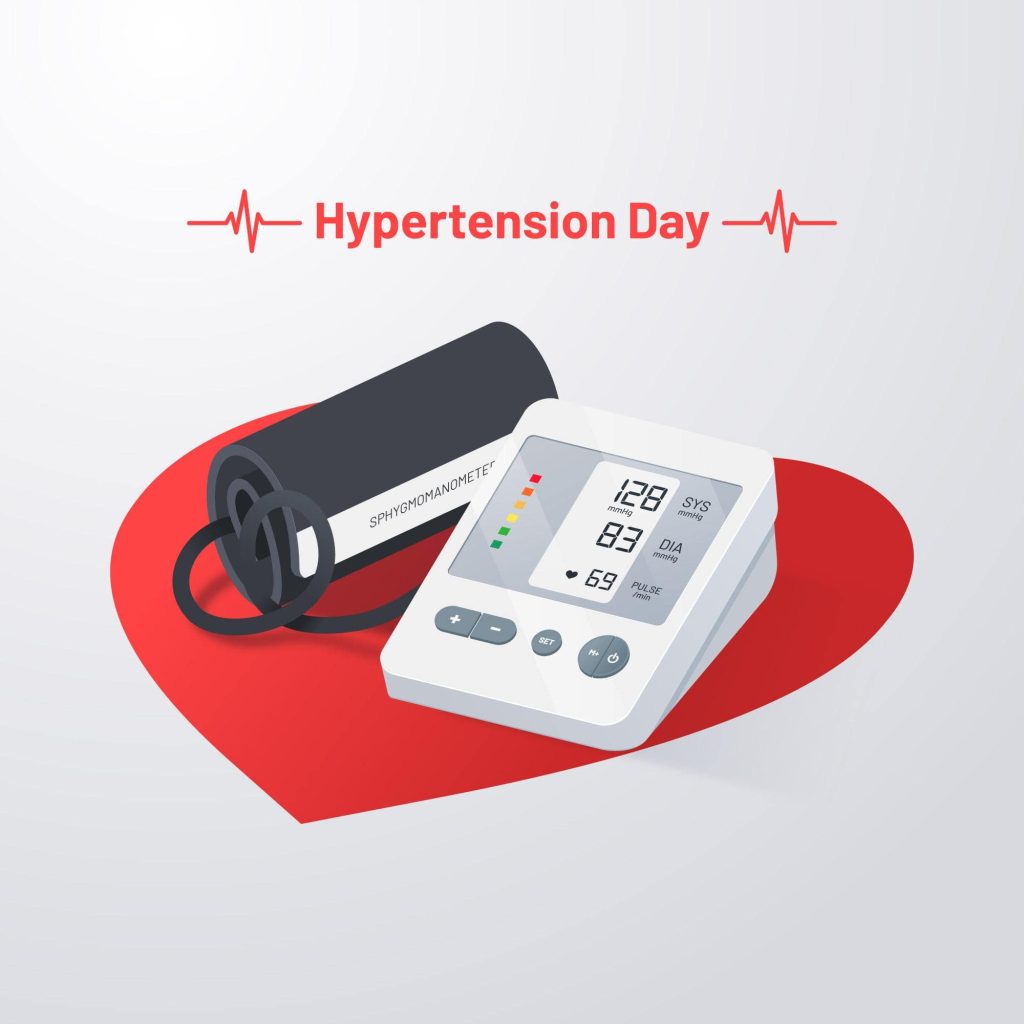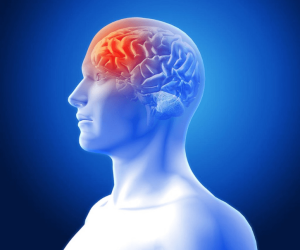If there’s one thing you shouldn’t ignore, it’s your health. High blood pressure, also known as hypertension, is a silent killer that affects millions worldwide. But here’s the catch – it often goes unnoticed until it’s too late. In this article, we’ll guide you through 10 silent signs of high blood pressure that you may be overlooking.

Your health is something you can’t afford to overlook. High blood pressure, also known as hypertension, is a silent danger that affects millions around the globe. Often, it goes unnoticed until it’s too late. That’s why we’re here – to educate and empower you. In this article, we’ll explore 10 subtle signs of high blood pressure that you shouldn’t ignore. By recognizing these silent red flags, you can take charge of your health and make informed decisions. Remember, your well-being matters. So let’s dive in and uncover these hidden signs together.

What is considered high blood pressure?
Blood pressure is a vital indicator of your overall health. It measures the force at which your blood pushes against the walls of your arteries as your heart pumps. When this force is consistently high, it’s a sign of hypertension, or high blood pressure.
According to the American Heart Association, blood pressure is considered high when the systolic (top number) reading is 130 mmHg or higher, or the diastolic (bottom number) reading is 80 mmHg or higher. These levels indicate that your heart is working harder than it should to circulate blood throughout your body.
It’s important to understand that blood pressure can fluctuate throughout the day, and a single high reading doesn’t necessarily mean you have hypertension. However, if your blood pressure remains elevated over time, it’s a clear sign that you need to take action to manage it. Uncontrolled high blood pressure can lead to serious health complications, including heart disease, stroke, and kidney damage.
Silent signs of high blood pressure
One of the most concerning aspects of high blood pressure is that it often goes unnoticed until it’s too late. Unlike other medical conditions that present obvious symptoms, hypertension is known as the “silent killer” because it can quietly wreak havoc on your body without any noticeable signs.
Many people with high blood pressure don’t experience any physical symptoms at all, making it easy to overlook. This is why regular blood pressure checks are so crucial – they can help identify the problem before it becomes a life-threatening issue.
However, there are some subtle signs that may indicate your blood pressure is higher than it should be. By being aware of these silent red flags, you can take proactive steps to manage your health and prevent serious complications. In the following sections, we’ll explore some of the lesser-known symptoms of hypertension that you shouldn’t ignore.
1. Headaches and high blood pressure
One of the most common silent signs of high blood pressure is persistent or recurring headaches. While headaches can have a variety of causes, they can also be a symptom of uncontrolled hypertension.
When your blood pressure is consistently elevated, it can put additional strain on the blood vessels in your brain, leading to painful headaches. These headaches are often described as throbbing or pulsing, and they may be accompanied by other symptoms like nausea or sensitivity to light.
It’s important to note that not everyone with high blood pressure will experience headaches, and not all headaches are a sign of hypertension. However, if you find that you’re experiencing frequent or severe headaches, it’s worth getting your blood pressure checked. Addressing the underlying issue of high blood pressure can help alleviate the headache symptoms and reduce your risk of more serious health complications.
2. Dizziness and high blood pressure
Another silent sign of high blood pressure is dizziness or lightheadedness. When your blood pressure is elevated, it can cause a sudden drop in blood flow to your brain, leading to feelings of unsteadiness or disorientation.
This can happen when you stand up too quickly, as your body struggles to adjust to the change in blood pressure. You may feel like the room is spinning or that you’re about to faint. In some cases, the dizziness may be accompanied by other symptoms like nausea or a rapid heartbeat.
Dizziness can also occur when your blood pressure is too low, a condition known as hypotension. However, if you find that you’re experiencing frequent or persistent dizziness, it’s important to get your blood pressure checked. Addressing the underlying issue of hypertension can help stabilize your blood pressure and reduce the risk of falls or other accidents.
3. Fatigue and high blood pressure
Feeling constantly fatigued or exhausted can also be a silent sign of high blood pressure. When your heart has to work harder to pump blood throughout your body, it can lead to feelings of tiredness and lack of energy.
This can happen even if you’re getting enough sleep or taking regular breaks. The extra strain on your cardiovascular system can leave you feeling physically and mentally drained, making it difficult to stay focused or engage in daily activities.
It’s important to note that fatigue can have many possible causes, ranging from stress to underlying medical conditions. However, if you find that you’re consistently feeling tired despite getting enough rest, it’s worth getting your blood pressure checked. Addressing the issue of hypertension can help restore your energy levels and improve your overall quality of life.
5. Chest pain and high blood pressure
While chest pain is often associated with heart attacks or other cardiovascular issues, it can also be a silent sign of high blood pressure. When your blood pressure is consistently elevated, it can put additional strain on your heart, leading to chest discomfort or tightness.
This type of chest pain is often described as a dull, aching sensation that may radiate to other parts of your body, such as your back, shoulders, or jaw. It can also be accompanied by other symptoms like shortness of breath, nausea, or sweating.
It’s important to note that chest pain can be a sign of a more serious underlying condition, such as a heart attack or angina. If you experience sudden or severe chest pain, it’s crucial to seek immediate medical attention. However, if you notice a persistent or recurring chest discomfort, it’s worth getting your blood pressure checked to rule out hypertension as a potential cause.
6. Vision problems and high blood pressure
High blood pressure can also have a significant impact on your vision, and this can be another silent sign of the condition. When your blood pressure is consistently elevated, it can damage the small blood vessels in your eyes, leading to a variety of vision problems.
One common issue is blurred or distorted vision, which can occur when the increased pressure in your blood vessels causes them to bulge or leak. This can lead to fluid buildup in the retina, the light-sensitive tissue at the back of your eye.
In some cases, high blood pressure can also cause sudden vision loss or double vision, as the damage to your blood vessels can disrupt the normal flow of blood to your eyes. If left untreated, this can lead to more serious complications, such as retinal detachment or even permanent vision loss.
Risk factors for high blood pressure While high blood pressure can affect anyone, there are certain risk factors that can increase your chances of developing the condition. Understanding these risk factors can help you take proactive steps to manage your health and reduce your risk of complications.
Some of the most common risk factors for high blood pressure include:
- Age: The risk of developing high blood pressure increases as you get older, particularly after the age of 65.
- Family history: If you have a close relative with high blood pressure, you’re more likely to develop the condition yourself.
- Obesity or overweight: Excess weight puts additional strain on your cardiovascular system, increasing your risk of high blood pressure.
- Sedentary lifestyle: A lack of physical activity can contribute to high blood pressure and other health issues.
- Unhealthy diet: A diet high in sodium, saturated fat, and processed foods can increase your risk of hypertension.
- Excessive alcohol consumption: Drinking too much alcohol can raise your blood pressure over time.
- Stress: Chronic stress can have a negative impact on your cardiovascular health, including contributing to high blood pressure.
- Certain medical conditions: Conditions like diabetes, kidney disease, and sleep apnea can also increase your risk of developing high blood pressure.
By understanding these risk factors and taking steps to address them, you can take a proactive approach to managing your blood pressure and reducing your risk of serious health complications.
High blood pressure is a serious health concern that often goes unnoticed until it’s too late. While it may not always present obvious symptoms, there are several silent signs that you shouldn’t ignore. From persistent headaches and dizziness to fatigue and vision problems, these subtle red flags can be early indicators of hypertension.
If you’re experiencing any of these silent signs, it’s important to take action and get your blood pressure checked. Regular check-ups with your healthcare provider can help you identify and manage high blood pressure before it leads to more serious health issues.
Remember, your health is too important to overlook. By recognizing the silent signs of high blood pressure and taking proactive steps to address them, you can take control of your well-being and reduce your risk of long-term complications. Don’t wait until it’s too late – schedule a blood pressure check-up today and take the first step towards a healthier future.




